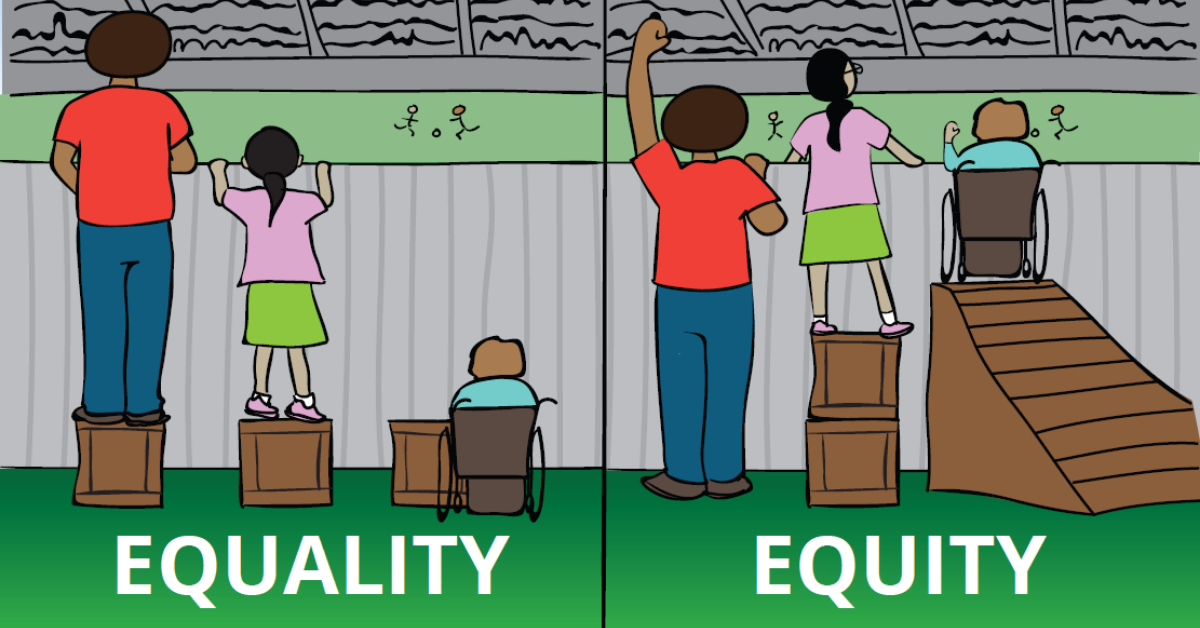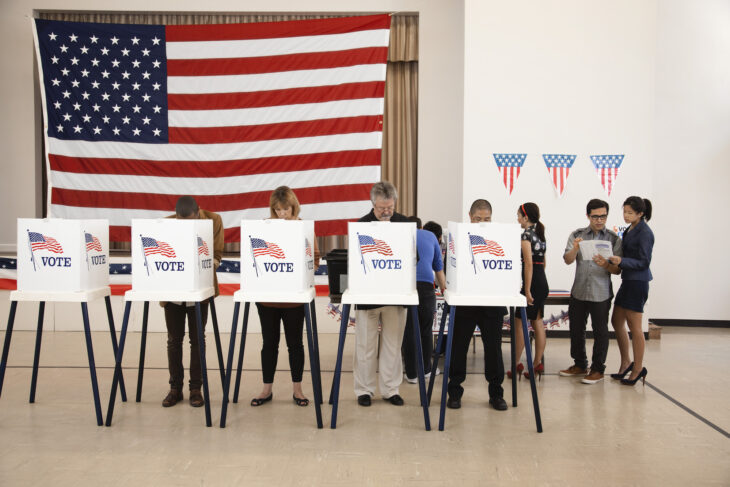
As we struggle to understand what inclusion means, we have to deal with identifying the differences between equality and equity.
Equality means that we all get the same opportunities, the same material, financial and physical resources. Much of what has been discussed about racial tolerance, gender equality, and other ideologies that promote unity, foster the notion that we can have true equality. In fact, it is improbable and unreasonable, not even worth considering. Equality implies that we all have the same personal, physical, social and psychological needs for living.
Equity, on the other hand, is a concept that transcends equality. It means that we all have the same opportunities to fulfill our potential to make meaningful contributions to the betterment of the world. It means that we can be different, acknowledge our differences and accept the fact that we have similar but different needs based on who we are and what we bring to the table. It emphasizes opportunity rather than extending the same economic, physical, social benefits to all.
Here are some examples. If equality were to be held aloft and I need to wear glasses because of a vision deficit, then everyone should have the same glasses. We would all be equal even if we didn’t all need the glasses. With equity, only those who need glasses would have the opportunity to get glasses, but everyone who needed them would have the same access to good medical care and equipment.
We need only to examine personal capacity to understand this differently. Some people have higher intellectual, artistic, or technological capacity than others. That’s why we have people who are capable doctors, lawyers, scientists, teachers, plumbers, mechanics, electricians etc, while others do well in sharing their strengths in social and emotional activities.
Therapists, social workers, clergy, etc. contribute to our well-being with their ability to understand the human potential to succeed and thrive. Still others should be recognized for their importance to the delivery of our support systems. With equity each one contributes as best they can to a prosperous society.
In another way, not all of us can be painters, but all of us have creative capabilities that can be shared. We all do not need to have classes in oil painting, but we all can benefit from having opportunities to express ourselves in some artistic capacity. Graphic art is one outlet. Music, writing, speaking, caring are other creative expressions of who we are. Quality leadership takes a creative person. Therapists are able to transcend words and actions to find solutions to emotional and psychological trauma and pain. Technicians keep our equipment functioning smoothly and allow others to complete their activities.
Multiple intelligence theorists have enhanced this notion because they recognize that there are many ways to show intelligence. In simple terms some of these have been identified as the following. Spatial intelligence or the ability to think abstractly, bodily-kinesthetic is the ability to perform physical tasks. Linguistic intelligence is the ability to process words effectively, logical-mathematical intelligence, interpersonal intelligence is the ability to understand how we relate to each other, intrapersonal intelligence is the ability to understand how our minds function and naturalistic intelligence is the ability to work with plants, animals and the environment. We all have some capacity or combination of these intellects that make us who we are. We all do not shine in the same way, but we all need opportunities to shine.
Equity is important in our discussion of inclusion, because it means we recognize that we all come together with different experiences and needs, but the one common factor is the recognition that everyone, despite their capacity, can thrive if they are given access to what is necessary for them to succeed. It means that there is an equality in the need for good education, for housing, for food and medical care, but the extent of those resources depends on equity that insures what is a necessity to thrive. The concept of inclusion depends on equity, not equality.



